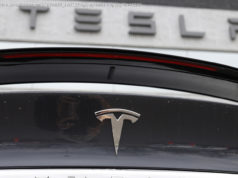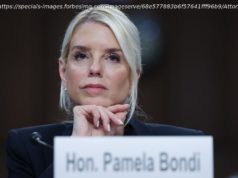The Foreign Secretary’s difficulty is that he doesn’t have a natural faction, and can count on the unstinting service of just a few MPs.
In the dying days of the Second World War, the subject of the future of eastern Europe came up. Winston Churchill interjected to warn Joseph Stalin, the ruler of the Soviet Union, that the sensibilities of the Pope had to be listened to. Stalin paused, then asked: “How many legions does the Pope have?”
His point was that while the Pope might have political influence, when it came down to cold, hard numbers, he had no military and therefore no real political power. There are not many comparisons to be drawn between Boris Johnson and the Pope, but this is one. The Foreign Secretary retains a significant degree of influence due to his supporters in the press, including his old stomping grounds of the Spectator and the Telegraph.
But as far as firm support among Conservative MPs go, the number of actual “divisions” he commands is significantly smaller. During the years of coalition, his support had two roots among the party’s MPs: the fondness in which he was held by Conservative activists, and the belief that he, having won London, was a “Heineken Tory” who could win in places where other Conservatives could not.
MPs buying stock in Johnson then tended to have a low view of David Cameron’s chances in the 2015 election. Their assumption was that the next leadership election would take place in the shadow of an Ed Miliband-led government, in which the Conservatives would have gone 23 years and four leaders without winning a parliamentary majority, and Johnson, at the time the most popular politician in the country, would be the logical frontrunner.
As a result, MPs we thought of as being in the Johnson camp tended to be from the party’s right, not because of any particular right-wing convictions on Johnson’s part, but because the further to the Conservative right you were, the more likely you were to think that Cameron’s approach was doomed to failure in 2015. The biggest brain of that tendency was probably Kwasi Kwarteng, the MP for Spelthorne. But Cameron’s unexpected success in 2015 and the emergence of new candidates on the Conservative right means that these MPs can now shop around, with the natural choice for many of them being Dominic Raab, a justice minister and the MP for Esher and Walton.
Bolstering Johnson’s support from the right were parliamentarians of the most valuable and dangerous commodity in any political party: MPs Who Want Jobs. This group were of the opinion that Johnson’s popularity meant that he would win any leadership election, and they wanted to get in on the ground floor. But the difficulty with this group, as George Osborne and Andy Burnham could both tell you, is that like nervous traders, they might bolt at any point; and they did, the second that Michael Gove chose to mount his own bid for the leadership in 2016 rather than support Johnson’s campaign. (Theresa May was the biggest net beneficiary.)
That Johnson’s USP – being able to win in parts of the country the Conservatives cannot usually reach – was holed below the waterline after Cameron’s win in 2015 only furthered the drop in support: the former Mayor of London simply didn’t have enough support to stay the course on his own, though the likes of Ben Wallace, MP for Wyre and Preston North, remained loyal.
Adding to his misery since then, though Theresa May has shown that being able to win a majority is harder than it looks, is that Ruth Davidson has taken some of his oxygen as a leader who can win in places the Conservatives tend to struggle. Meanwhile, Jacob Rees-Mogg has supplanted him as the activists’ darling.
But that doesn’t mean that there isn’t a path to power, or at least a second-placed finish among Conservative MPs, after which point he has, as one Johnson-supporting MP puts it, “a puncher’s chance” of beating whoever he faces among members.
Just as in the last leadership election, where the top two candidates were MPs who had campaigned for Remain (Theresa May) and for Leave (Andrea Leadsom), it is likely that the top two will again be a choice between two sides of the party’s referendum divide. And although Johnson is not the first choice of many committed Brexiteers, he has the advantage that he is not their last choice, either.
How are the Brexit negotiations going? That is a deceptively easy question with a fiendishly complicated answer. After the latest round of negotiations, Brexit is quickly becoming synonymous with words like « impasse », « deadlock », and « blockage ». Yet, in another sense, it was never going to be any different. In particular, the fault lines keep re-emerging precisely where the unstoppable force of Brexit meets the immovable object of the EU – notably, budget contributions. As both sides pull harder, loose negotiation threads become tangled into what the Greeks call a Gordian knot – the legendary bundle that nobody could untie.
Worse, the current approach by David Davis and his team appears, if anything, to be tightening the knot further for two main reasons. First, while the British press and politicians focus on Brexit every day, nudged by a constant stream of leaks, this is not the case on the continent. Part of this is understandable – untangling 44 years of European law is fiendishly complicated, as the EU Withdrawal Bill demonstrates.
However, this creates the impression that these negotiations are followed closely by national leaders and that, perhaps, the UK can bypass the « inflexible » European Commission and talk directly to the « decision-makers ». This is unlikely to work. Simply put, Brexit is down the EU’s pecking order of challenges, behind topics such as migration and neighborhood policy, rule of law in some member states, security challenges, and managing the transatlantic relationship. Indeed, in the recent German electoral debate between Angela Merkel and Martin Schulz, Brexit was mentioned exactly zero times.
The second reason why the Gordian knot keeps tightening, as the third round of negotiations last month made clear, is the UK’s contribution to the EU budget. Its refusal to engage on the issue and discuss a possible methodology has angered many in Brussels. The reason why this is proving so tricky lies in the conception of the infamous Article 50. Brits should be aware of this, given the leading role of Lord Kerr in the process.
In short, Article 50 was never intended for a big member state, but rather as a quick procedure to terminate relations with a recalcitrant member state that had drifted far apart in matters of rule of law and democracy. The candidates in mind at the time were all among the new members in Central and Eastern Europe – and they are net recipients rather than contributors to the EU budget. Therefore, Article 50 did not explicitly envisage any rules for what to do if the leaving country is actually a contributor, not to mention one as large as Britain, which is responsible for roughly 12 per cent of the overall EU budget.
For Brussels, Britain is still pushing and poking for ways to « have its cake and eat it too ». The barrage of position papers, while welcome, shows that London is still aiming at a bespoke deal that preserves the benefits of membership (frictionless trade, free-flowing capital) without its obligations (European Court of Justice jurisdiction, movement of people, and budget contributions). Hence the oft-repeated invocation « no cherry-picking » that reflects, simply, the fact that the EU is not going to consciously break its own social contract to satisfy Davis.
Home
United States
USA — Science Boris Johnson has a problem: he doesn't have any friends Both the...






